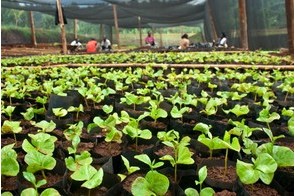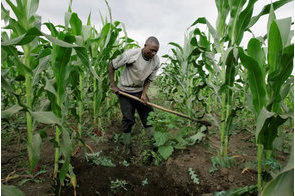IFC invests $25 million in FNB Zambia to boost SME lending

Summary
The investment is to support FNB Zambia become the country’s leading bank for lending to SMEs and agribusinesses.
The International Finance Corporation (IFC) has invested $25 million in First National Bank Zambia, one of the country’s largest banks, to enhance its capacity to lend to small and medium-sized enterprises and export-oriented agribusinesses.
The IFC said on Tuesday that the investment is in support of the bank’s strategy to become the country’s leading bank for lending to SMEs and the agribusiness sector.
About half of Zambia’s 15 million population resides in rural areas where formal employment is scarce and poverty is high. More so, 28 percent of Zambian firms cited lack of credit as their top operational constraint in a survey in 2013.
“By supporting the small business sector and agricultural sector, our support to FNB Zambia will contribute to the country’s efforts to improve its resilience and diversify the economy, which is especially important in economically challenging times,” said Oumar Seydi, IFC’s Director for Sub-Saharan Africa.
Founded in 2009, FNB Zambia is a wholly owned subsidiary of South Africa’s First Rand Group. The bank has 21 branches, 770 staff and about 190,000 clients.
“We are excited that this facility will further support our focus on the SME and agriculture sectors that are key in addressing the country’s challenges of poverty and unemployment,” said Johan Maree, FNB Zambia’s CEO.
Related
-
IFAD launches agriculture network to bridge financing gap in rural areas
SAFIN will bring together private, public and philanthropic sectors to resolve rural financing challenges with coordinated ...
-
Uganda's Grainpulse receives $11 million from IFC to support farmers
The investment will enable Grainpulse to support its expansion and increase food production in Uganda.
-
IFAD projects improve food security among rural poor in Nigeria
Notable achievements were recorded with regard to access to finance, community capacity-building and job creation.







